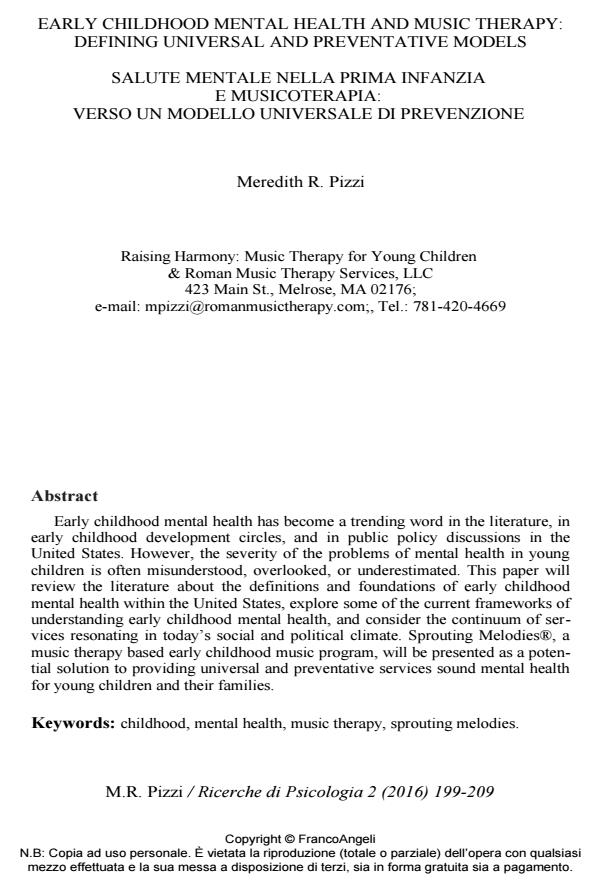Early childhood mental health and music therapy: defining universal and preventative models
Journal title RICERCHE DI PSICOLOGIA
Author/s Meredith R. Pizzi
Publishing Year 2016 Issue 2016/2
Language English Pages 11 P. 199-209 File size 191 KB
DOI 10.3280/RIP2016-002005
DOI is like a bar code for intellectual property: to have more infomation
click here
Below, you can see the article first page
If you want to buy this article in PDF format, you can do it, following the instructions to buy download credits

FrancoAngeli is member of Publishers International Linking Association, Inc (PILA), a not-for-profit association which run the CrossRef service enabling links to and from online scholarly content.
Early childhood mental health has become a trending word in the literature, in early childhood development circles, and in public policy discussions in the United States. However, the severity of the problems of mental health in young children is often misunderstood, overlooked, or underestimated. This paper will review the literature about the definitions and foundations of early childhood mental health within the United States, explore some of the current frameworks of understanding early childhood mental health, and consider the continuum of services resonating in today’s social and political climate. Sprouting Melodies®, a music therapy based early childhood music program, will be presented as a potential solution to providing universal and preventative services sound mental health for young children and their families.
Keywords: Childhood, mental health, music therapy, sprouting melodies
Meredith R. Pizzi, Early childhood mental health and music therapy: defining universal and preventative models in "RICERCHE DI PSICOLOGIA " 2/2016, pp 199-209, DOI: 10.3280/RIP2016-002005